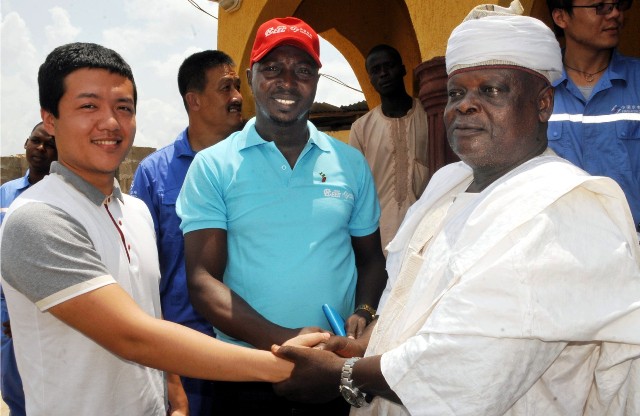Business
FG’s Savings Bonds: 7,000 Investors Subscribe In Five Months

The Director-General, Debt Management Office (DMO), Ms Patience Oniha, says about 7,000 investors have subscribed to the Federal Government’s savings bonds since its introduction in March.
Oniha told newsmen recently in Abuja that one of the primary reasons for introducing the savings bond was to encourage a savings culture among the populace.
She said that considering that the subscribers are largely retail investors, it meant that the savings bond had provided a vehicle for mobilising savings.
The DMO boss said it would continue to support the product and attract more subscriptions through investor enlightenment.
The bond allotment results obtained from the DMO website showed that in March, N2.068 billion was allotted to 2,575 investors, while in April, N1.2 billion was allotted to 1,798 subscribers.
In May, N790.85 million was allotted to 1,233 subscribers, while in June N607.26 million was allotted to 921 subscribers.
In July, N400.5 million was allotted to 779 investors, while in August there was an upward improvement to N738.14 million allotted to 761 subscribers.
The bond issuance is part of the Federal Government’s programme targeted at the lower income earners to encourage them to save and earn more income (interest), compared to their savings accounts with banks.
It was introduced to enable all citizens participate in and benefit from the favourable returns available in the capital market, and is also to help finance the nation’s budget deficit.
The bonds are debt securities (liabilities) of the Federal Government backed by its ‘full faith and credit’ with interests to be paid at regular periods and principal repaid at maturity.
It has a tenor of between two to three years and a minimum size of investment of N5,000 and maximum of N50 million.
The bond is aimed at deepening the national savings culture; diversifying government’s funding sources and providing opportunity to all citizens, irrespective of income level to contribute to national development.
It is issued through stock broking firms accredited by the DMO to market and distribute it.
The issuance which began in March has been carried out monthly and will continue till December.
Business
Nigeria’s ETF correction deepens as STANBICETF30, VETGRIF30 see 50% decline in a week

Business
BOI Introduces Business Clinic

Business
Dangote signs $400 mln equipment deal with China’s XCMG to speed up refinery expansion

-
Maritime3 days ago
Nigeria To Pilot Regional Fishing Vessels Register In Gulf Of Guinea —Oyetola
-
Maritime3 days ago
Customs Declares War Against Narcotics Baron At Idiroko Border
-

 Sports3 days ago
Sports3 days agoGombe-Gara Rejects Chelle $130,000 monthly salary
-
Maritime3 days ago
NIMASA,NAF Boost Unmanned Aerial Surveillance For Maritime Security
-

 Sports3 days ago
Sports3 days agoTEAM RIVERS SET TO WIN 4×400 ” MORROW” …Wins Triple jump Silver
-
Maritime3 days ago
NIWA Collaborates ICPC TO Strengthen Integrity, Revenue
-

 Sports3 days ago
Sports3 days agoNPFL Drops To 91st In Global League Rankings
-

 Sports3 days ago
Sports3 days agoNPFL Impose Fines On Kwara United Over Fans Misconduct

